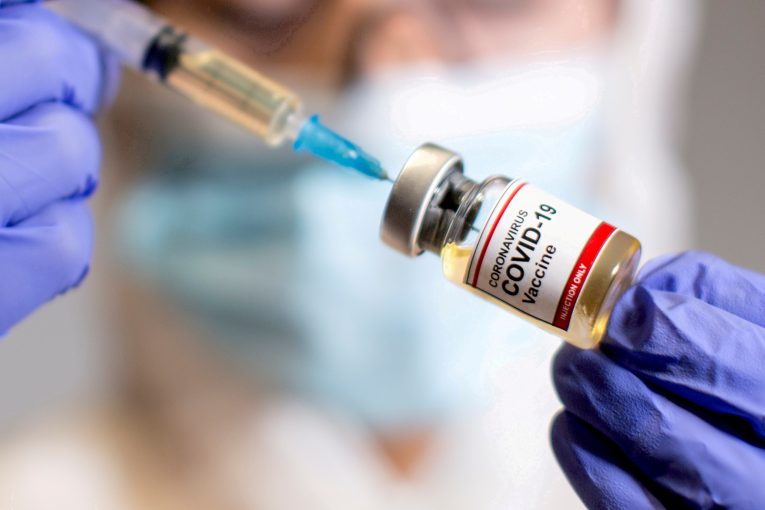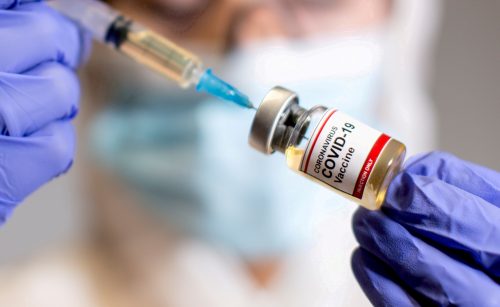

By: Jessica Yu
DAVIS, CA – While COVID-19 has swept the United States, another pandemic fueled by misinformation has been happening as well. Researchers at the University of California, Davis and University of Texas, Austin analyzed Twitter users and came to the conclusion that this “infodemic” is more likely to occur with Republicans who believe in their local government because their government is spreading COVID misinformation. On the other hand, Democrats are not as affected by this wave of misinformation from their own local governments.
“Constituents’ Inferences of Local Governments’ Goals and the Relationship Between Political Party and Belief in COVID-19 Misinformation: Cross-sectional Survey of Twitter Followers of State Public Health Departments,” published on Feb. 2, investigates how partisanship and health misinformation are related to one another. The researchers found that party preference predicts the extent to which individuals will trust their local government for information regarding the COVID-19 pandemic, which enables certain government officials to spread misinformation. People who are invested in their political party are more likely to believe government officials in the same party. The researchers believe that the Twitter users’ belief in COVID-19 misinformation reflects the extent to which they believe in their governments’ goals.
The researchers, Hannah Stevens, a PhD candidate in UC Davis’ Department of Communication, and Nicholas A. Palomares, a professor in the Communication Studies Department at University of Texas, Austin, hope that their data will influence how state and local health officials will manage and “improve COVID-19 related messaging in the future.”
From Aug. 23 to Dec. 23, 2020, researchers used a cross-sectional survey for U.S.-based Twitter users in all 50 states who followed their state’s official Department of Public Health Twitter account.
The researchers then surveyed around 532 people about their party affiliation and other information, and they retained responses from 258 of the participating Twitter users. The other 274 participants were excluded from the final analysis since they had failed to complete at least one question they had been asked.
“Our research shows that public health officials can be most successful with their appeals to the public by taking into account pre-existing political views and testing what will or won’t resonate with their constituents because of this,” said Stevens.
Stevens also said that “consumers of health information should be cautious about automatically trusting information broadcast by elected officials based on shared political views—even if they instinctively want to trust them.”
According to the results of their research, Republicans are more likely to believe misinformation from their local government if they believe that their local government has good intentions. A potential example of this being many in America choose to remain unvaccinated thanks to the misinformation they are fed. As of March 16, 2022, more than 36% of the U.S. population is still not fully vaccinated. Not being fully vaccinated leaves them vulnerable to a virus that could result in hospitalization or death.
As revealed in a 2021 survey from the Kaiser Family Foundation, some misconceptions of getting a COVID-19 vaccine include: the vaccine causing infertility, giving people COVID-19, changing people’s DNA, or putting a microchip in people.
Popular Republican figures like Donald Trump continue to treat COVID-19 like the common flu, despite the research that suggests that COVID-19 causes more severe illnesses. On May 8, 2020, Trump erroneously claimed that COVID-19 was “going to go away without a vaccine …,” and that America was “not going to see it again, hopefully, after a period of time.”
Others downplay the severity of COVID-19, believing that COVID-19—especially the omicron variant—is comparable to the flu.
“Our data speaks to the reality that health information and ‘facts’ can be subjective and manipulated in service of political agendas rather than public health goals, which is problematic if we ever want to get out of this pandemic,” said Palomares.
Palomares has hope though, “it’s encouraging, however, that constituents who are more critical and skeptical of their local government seem to be less susceptible to misinformation and perhaps even agendas employing it.”

I don’t disagree with the findings on the insanity of misinformation, here mostly on rightie insanity, but I find it highly questionable that the misinformation from the left wasn’t studied as well — such as all the lies that Fauci admitted that he told ‘for the public good’ when in my opinion he did great long-term harm in fighting the pandemic and public trust. As well, the tendency of the left to shut down what they perceive as ‘misinformation’ the most obvious example the lab leak theory – which you couldn’t talk about and now is considered by many, even on the left, to be a credible theory. You can’t shut down discussion on a theory just because it doesn’t fit the current narrative — that is dangerous stifling of speech and discussion.
I think you’re “misunderstanding” something:
Democrats are driven by science, as demonstrated by this scientific study of Twitter users (and their volunteered responses).
Republicans are driven by superstition and emotion.
That’s the conclusion you’re supposed to draw, and it’s pretty much what some have been claiming all along.
Unless they’re also Republicans, of course.
As with most Vanguard articles, I usually can’t past the title without laughing.
Notice the location of the Universities: Davis and Austin.
They probably should have thrown researchers from Madison, Portland and Berkeley just to make sure the study was ‘balanced’.
“Participants from all 50 states were included in the sample.”
Actually, though – what if the politicians are (also) Democrats? (Given that this is who Republicans believe, more than scientists?)
Real question for both the above:
what if the researchers are (also) Democrats?
Screenshot from the UC Davis news which was written by one of the lead authors of the peer reviewed journal article…
Peer reviewed journal article…
Sorry, but a Twitter user study doesn’t sound too scientific to me.
It is better once some ‘users’ (including some notable “frequent fliers”) have been banned/suspended, tho’… still is a ‘limp’ indicator…
Let’s see if that ban is maintained, going forward.
https://www.businessinsider.com/former-tesla-board-member-advice-twitter-elon-musk-2022-4
I find Elon Musk to be interesting, at least.
And I’m not crazy about the bans/control that social media companies have implemented, which appear to have a strong political motivation.
So, an average of about 5 per state? Wow!
There you go KO, manipulating the data skewed in the direction that fits your narrative.
It should be an average of about 5.16 per state.
. . . wow
You guys realize that a standard polling size is 300 to 500 respondents. Even a large poll of 1000 to 2000 by you measure would work out to 20 to 40 per state. But that’s not how polling is done.
The bigger issue is that Twitter is not likely to be an accurate reflection of Republicans at large. Nor are those Twitter users who “self-select” by responding to a survey likely to be an accurate reflection.
Then, there’s issues such as “who” the politicians are that are being referred to, are they Republicans vs. Democrats, etc. (Which begs the question, do Republicans “trust” Democratic politicians, more than scientists? Or, are we referring to situations where the politicians are Republicans?)
And, do Democrat respondents trust Republican politicians? (Assuming those are the politicians referred to in this study?)
What was the exact question asked, etc.
So, even though this type of survey is often performed (and reviewed), it can’t be relied upon for actual conclusions.
How did this article end up on the Vanguard, anyway?